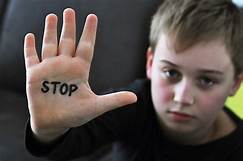By Charlotte Webster
Children who are sexually abused by family members are often left unheard or unseen in too many cases, allowing abusers evade justice, according to a disturbing new report.
The six local authorities that formed the basis of the research were Bracknell Forest, Cornwall, Derby City, Islington, Shropshire and York. The report points out that sexual abuse in the family environment may be perpetrated by a family member, including a child or adult sibling, or by a person close to, or known to, the family. This could be a family friend, a partner of a parent or other trusted adult.
Inspectorates Ofsted, HMICFRS, Care Quality Commission and HMI Probation found that local agencies are often woefully ill-equipped to deal with child sex abuse in families. Efforts to prevent abuse are largely absent, while ineffective criminal investigations are, in the worst cases, leaving children at risk. Many times the child victims of abuse go on to display unwanted sexual behaviour to other children, leading to them being treated as perpetrators alone, instead of being thoroughly examined as potential victims themselves.
Inadequate knowledge about the symptoms of child abuse is wide among many professionals, that victims can go undetected for too long, the report states. Child victims of sex abuse are usually reluctant to spill the beans. Over two thirds of all child abuse comes from someone known to the victim. Under reporting could even mean the figure is higher, experts warn.
Despite the likely extent of the problem, local and national strategies to tackle it are virtually non-existent, the report shows. The inspectorates say there is a worrying lack of knowledge and focus on familial abuse from all local partners. While agencies have improved their response to child grooming outside the home, the less high-profile issue of familial sex abuse is not getting the priority it needs, the report finds.
Today’s report examines how well children’s social care, health, youth offending, police and probation services work together to keep children who are sexually abused in families safe. Although inspectors found pockets of good work, this was inconsistent at best.
Important lessons learned from dealing with child sexual exploitation are not being applied to abuse in families. Professionals don’t know enough about perpetrators; how to identify them and how to stop them from abusing children. Better training and support for those on the front line is vital, the inspectorates say.
The report calls on policy makers and local partners to give familial sex abuse the attention it deserves; so that its prevalence can be better understood, victims are protected, and offenders are brought to justice.
Children are left without medical treatment for possible sexually transmitted infections, other injuries and without mental health support because police determine that medical examinations aren’t needed if they fall outside the window for forensic evidence.
The report also claims that children are left in limbo or at worst unsafe, due to significant delays to police investigations. Rather than arrest, voluntary attendance is being used to interview suspects, so children aren’t protected by bail, while potential abusers could be destroying evidence. More disturbingly, the report claims that inappropriate police bail conditions leave abusers free to contact and, in some cases, even return to live with the children they are abusing.
Inspectors concluded that the work needed to educate the public about risks relating to child sex abuse was inadequate.
Amanda Spielman, Ofsted’s Chief Inspector, said:
As a society, we are far too reluctant to talk about sex abuse within the family home. It’s much easier to think of abuse happening elsewhere, to other people. Prevention is the best form of protection. If we are to deal with incest or other abuse involving families or family friends, we must talk openly and honestly about the signs and symptoms – to protect children and to stop abusers in their tracks.
As it stands, children abused in the home are going unseen and unheard because agencies simply aren’t capable of keeping them safe. The lack of national and local focus on this issue is deeply concerning and must be addressed.
Ursula Gallagher, Deputy Chief Inspector of General Practice and Children’s Health, said:
The impact of abuse is far-reaching and has a lasting effect of the child and those around them – this report highlights too many missed opportunities to better protect them from harm. It is vital that people in healthcare and across other agencies work together, think about the wider social situation a child might be living in, share information to protect children from abuse and create support around those who are at risk.
Wendy Williams, HM Inspector of Constabulary, said:
As detailed in today’s report, we believe that the police and other agencies do not prioritise this kind of abuse highly enough. This results in missed opportunities to safeguard vulnerable and at-risk children. There needs to be an increased awareness of child sexual abuse in the family environment, with better training and support given to frontline professionals (for example, in how to recognise non-verbal signs of sexual abuse). This will enable those professionals to successfully intervene at the earliest possible stage and to safeguard the child from further harm.
Justin Russell, Chief Inspector of Probation, said:
Probation staff – alongside those in other agencies – should receive specific training to identify and respond to signs of abuse. Professional curiosity is essential too. Actions such as conducting home visits or cross-checking information with police and social services could help to keep actual and potential victims safe.

